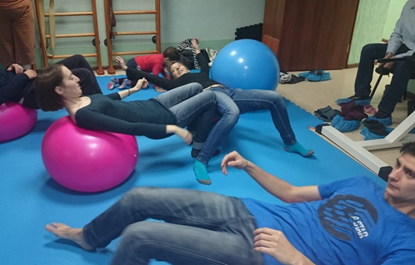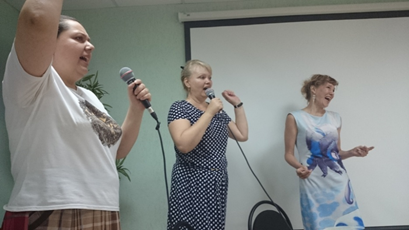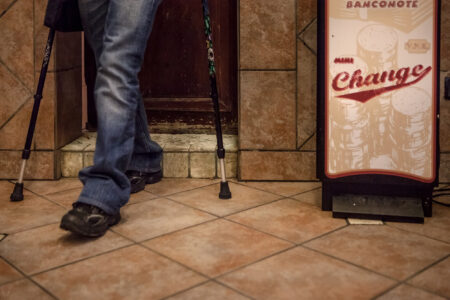
MS rehabilitation, a family programme
05.02.2017By Pavel Zlobin
This is a report about the construction and activity of an MS rehabilitation centre. It is also a story about the efforts invested by the local and national patient organisations in Russia to build this centre for people with multiple sclerosis and other neurological disorders. Article for EMSP’s Membership Newsletter.
Medical and non-medical rehabilitation are very important for people living with MS and other chronic disorders. Both rehabilitation methods help those affected control their health and manage their social inclusion. In these cases, rehabilitation should become routine practice.
Don’t forget the families

Rehabilitation also needs to be comprehensive: for those directly affected by disability but also for those indirectly affected. For their families, more often than not. Ten years ago, two MS advocates in the city of Samara reached this conclusion. MS advocate Svetlana Goronkova – who would go on to become 2013 International Person with MS; and Oleg Ipatov – a dedicated representative of the Russian Multiple Sclerosis Society. They started making plans to build a rehabilitation centre. They attracted four other organisations for disabled people.
Uniting their voices, they then lobbied political decision-makers. One of their most convincing arguments was that the centre would relieve the burden on health authorities. They also remembered to put their initial idea on the table: family support.
The rehabilitation coalition
In time, the plan grew more specific: the centre required room to accommodate social workers, physical activities and two computer classes. The rehabilitation coalition persevered and within five years they succeeded. They found a 360 square meters building and premises, and attracted funding and equipment. Total value: 135,000 euros.
The Rehabilitation Centre finally opened in 2013. Today it is carrying out various activities of medical, social, educational, psychological and physical nature. Trainings conducted here cover self-help and self-control, communications skills, social behaviour as well as household adaptation techniques. The centre is also making an effort to address individual issues, such as the improvement of living conditions.

A few 2015 statistics: the centre conducted 12 ‘schools for patients’, 15 psychological trainings, more than 120 music-therapy sessions and classes in applied arts, and about 25 thematic events. It hosted aspects of everyday life. The patients and their families enjoyed them. And they still do.
The number of people with multiple sclerosis living in Russia is estimated at 150,000.
 Your Account
Your Account


